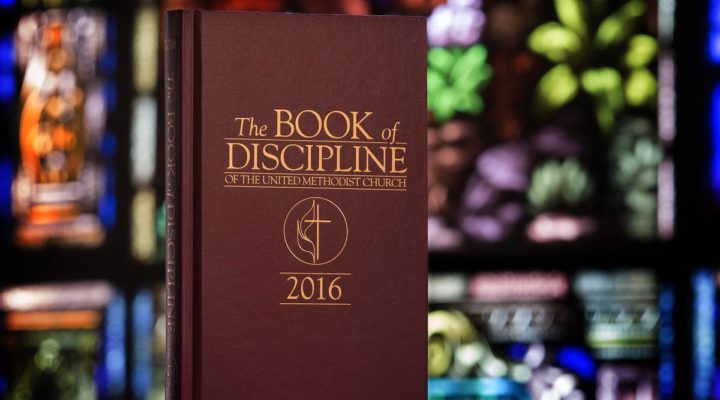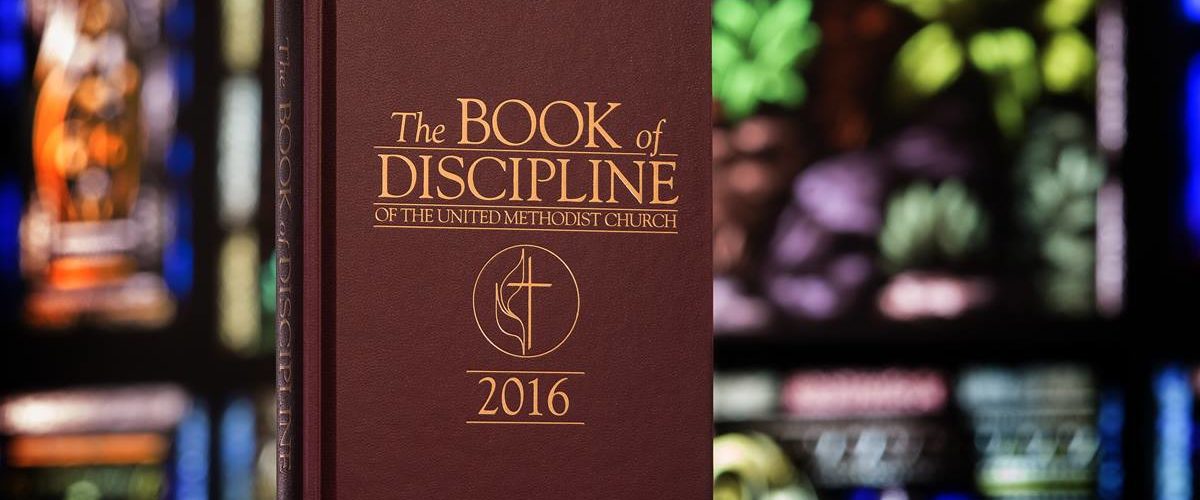The recent spate of ultraconservative decisions by the U.S. Supreme Court has put The United Methodist Church officially at odds with the nation’s highest judicial body. The denomination’s opposition to the high court’s decisions can be found from its core beliefs through its Christian living guides known as the Social Principles.
Contained in the UMC’s Book of Discipline, its collection of church doctrine and policies, United Methodists officially hold beliefs that directly oppose the legal, political and religious philosophies the conservative supermajority of the Supreme Court cited in its most recent rulings.
In relation to government, these beliefs begin with Article XVI of the church’s constitution: “We believe civil government derives its just powers from the sovereign God. As Christians we recognize the governments under whose protection we reside and believe such governments should be based on, and be responsible for, the recognition of human rights under God.”
The United Methodist constitution’s precepts are put into action via the denomination’s way of thinking through life’s thorny questions. This process, found in the Discipline section titled “Our Theological Task,” consists of interpreting and applying Scripture to daily life through the lenses of tradition, experience and reason, a rationale used by Methodism’s founder John Wesley. United Methodism’s theological process is considered so crucial to its identity that candidates for ordained ministry are specifically asked, “How do you intend to affirm, teach and apply Part III of the Discipline (Doctrinal Standards and Our Theological Task) in your work in the ministry to which you have been called?”
“These concerns are borne by theologies that express the heart cries of the downtrodden and the aroused indignation of the compassionate.”
A section called “The Present Challenge to Theology in the Church” frames United Methodist response to current issues: “Of crucial importance are concerns generated by great human struggles for dignity, liberation and fulfillment — aspirations that are inherent elements in God’s design for creation. These concerns are borne by theologies that express the heart cries of the downtrodden and the aroused indignation of the compassionate.”
These aspirations are carried out through the collection of guidelines for Christian living known as the Social Principles, which bear varying levels of engagement by United Methodists. Some view the principles as an authoritative framework to be scrupulously followed, while others consider them to be only guidelines that can be discarded by personal preference. Some more conservative United Methodists disdain the principles entirely as evidence of the denomination’s liberal bent that values social action over saving souls — a valid criticism when the spiritual underpinnings of the Social Principles get lost in zeal for public advocacy.
Whatever way they’re received, the Social Principles are a carefully crafted set of perspectives that seek to carry on Wesley’s “social holiness” tradition. Up for review every four years by the General Conference, the UMC’s top legislative body, the Social Principles represent the denomination’s best attempt at embracing a “big tent” community that respects varied perspectives — even when views are diametrically opposed to one another.
Here are summaries of the official United Methodist positions that pertain to recent Supreme Court rulings:
Separation of church and state: Two of the court’s recent rulings, Carson v. Malkin and Kennedy v. Bremerton School District clarify that its six conservative justices are disposed to tear down the wall of separation between church and state first elucidated in Thomas Jefferson’s 1801 letter to Danbury Baptists that referenced the First Amendment.
“We believe that the state should not attempt to control the church, nor should the church seek to dominate the state.”
In contrast to the Supreme Court’s decisions, Book of Discipline Paragraph 164 (C) states: “The United Methodist Church has for many years supported the separation of church and state. … Separation of church and state means no organic union of the two, but it does permit interaction. The state should not use its authority to promote particular religious beliefs (including atheism), nor should it require prayer or worship in the public schools, but it should leave students free to practice their own religious convictions. We believe that the state should not attempt to control the church, nor should the church seek to dominate the state. The rightful and vital separation of church and state, which has served the cause of religious liberty, should not be misconstrued as the abolition of all religious expression from public life.”
Environmental regulation: United Methodists’ care for God’s creation begins in its section “Our Theological Task” which states: “Misuse of natural resources and disregard for the fragile balances in our environment contradict our calling to care for God’s creation.”
This belief directly opposes the Supreme Court’s ruling in West Virginia v. Environmental Protection Agency, in which the high court stripped the EPA of its authority to regulate emissions of carbon dioxide. The UMC has a lengthy section, Paragraph 160, titled “The Natural World,” that asserts “All creation is the Lord’s, and we are responsible for the ways in which we use and abuse it.”
Regarding the West Virginia case, Paragraph 160 (B) spells out United Methodism’s stance: “We strongly advocate for the priority of the development of renewable energies. The deposits of carbon, oil and gas resources are limited, and their continuous utilization accelerates global warming.”
Additional concerns about the West Virginia decision’s effect on U.S. participation in alleviating the worldwide climate crisis are addressed in section 160 (D) titled “Global Climate Stewardship: “Rampant industrialization and the corresponding increase in the use of fossil fuels have led to a buildup of pollutants in the earth’s atmosphere. These ‘greenhouse gas’ emissions threaten to alter dramatically the earth’s climate for generations to come with severe environmental, economic and social implications. The adverse impacts of global climate change disproportionately affect individuals and nations least responsible for the emissions. We therefore support efforts of all governments to require mandatory reductions in greenhouse gas emissions and call on individuals, congregations, businesses, industries and communities to reduce their emissions.”
Environmental care marks one issue where United Methodism puts its money where its social principles are. All church units are required to follow guidelines for sustainable investment outlined in Discipline Paragraph 717: “All United Methodist institutions shall endeavor to seek investments in institutions, companies, corporations or funds that promote racial and gender justice, protect human rights, prevent the use of sweatshop or forced labor, avoid human suffering and preserve the natural world, including mitigating the effects of climate change.”
Wespath Benefits and Investments, United Methodism’s pension and insurance agency, takes this principle to its fullest through a Sustainable Economy Framework. Using a trifold set of actions — invest, engage, avoid — Wespath says it believes “investors must create and support a sustainable global economy — one that promotes long-term prosperity for all, social cohesion and environmental health.”
Thus the West Virginia decision, which freed fossil fuel companies from EPA’s carbon emission regulation, directly contradicts United Methodist goals for investing its roughly $28 billion in clergy pensions, let alone the millions of assets held by its annual (regional) conferences and local congregations.
Abortion: Aside from its opposition to same-sex relations, the United Methodist stance on abortion found in Discipline Paragraph 161 ranks as the church’s most carefully nuanced social policy. United Methodists recognize “tragic conflicts of life with life” that may justify abortion, such as saving a mother’s life or relieving a victim of a pregnancy resulting from rape or incest.
At the same time, the church laments high rates of abortion and unconditionally rejects the procedure as a means of birth control or gender selection. Overall, the UMC formally grants what the Supreme Court has just taken away in Dobbs v. Jackson Women’s Health Organization: the right of a woman to control her own body.
“In practice, United Methodists are as divided over abortion as are their fellow Americans.”
In practice, United Methodists are as divided over abortion as are their fellow Americans.
Paul Stallsworth, a North Carolina pastor who edits Lifewatch, the newsletter of the unofficial Taskforce of United Methodists on Abortion and Sexuality, told UM News he views the ruling as an opportunity for the church to protect “the most vulnerable,” meaning “the unborn child and the mother of the unborn child.” Stallsworth’s group long has organized a worship service that coincides with the annual anti-abortion March for Life demonstration.
In contrast, United Methodist units most concerned with the welfare of women and children decried the Dobbs decision. The General Board of Church and Society, the General Commission on Status and Role of Women and United Women in Faith (formerly United Methodist Women) all issued statements condemning the Supreme Court ruling.
Abortion probably will be the most visible issue in which United Methodists will defy the Supreme Court ruling, even to the point of breaking local or state laws. United Methodist pastors and laypeople in Texas already have declared publicly they will assist women seeking abortions despite the legal liability imposed by the state’s ban on abortions enacted last fall. The Texas law allows anyone to sue a person who aids a woman to get an abortion, so pastors and other spiritual counselors are at great risk. Nonetheless, citing the Social Principles, some United Methodist pastors in Texas have said they will challenge the state’s ban, both via the courts and by aiding those who now must travel out of state to get the procedure.
Unfortunately, many rank-and-file United Methodists are unaware of the denomination’s theological stances and its Social Principles on these and other current issues. Discovering the UMC formally opposes many of the political and legal philosophies now in play on the Supreme Court often ignites anger and resentment among conservative church members. Dissident forces are using these adverse reactions as a wedge to divide the denomination.
In contrast, United Methodists dismayed by the Supreme Court’s recent rulings will find plenty of theological support for their opposition in The United Methodist Church’s official doctrines. Future efforts will show whether that knowledge will spur new activism to restore what the high court has taken away.
Cynthia B. Astle is a veteran journalist who has covered the worldwide United Methodist Church at all levels for more than 30 years. She serves as editor of United Methodist Insight, an online journal she founded in 2011.
Related articles:
United Methodist Church split draws celebration, lament and soul-searching
Just when you think the United Methodist Church breakup can’t get any more difficult …


